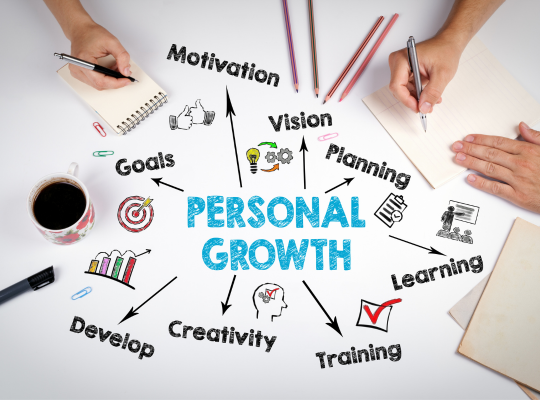As someone who has just stepped into leadership for the first time, it is an exciting and daunting journey. Moving from being an individual contributor to leading a team comes with a whole new set of responsibilities, expectations, and hurdles. Transitioning into leadership requires more than just technical expertise; it demands emotional intelligence, strategic thinking, and the ability to inspire others.
To navigate this journey effectively, coaching for new leaders offers tailored support to build confidence and equip individuals with the skills necessary to succeed. Here, we explore essential strategies for leadership coaching and how they can foster long-term success for emerging leaders.
The Challenges of Transitioning into Leadership
Transitioning into a leadership role often comes with its own set of challenges:
- Balancing New Responsibilities: Leaders have to balance new responsibilities with managing team performance, identifying team goals and making sure their teams drive results.
- Building Authority and Trust: Building credibility and gaining the trust of team members is mutually beneficial.
- Shifting Mindset: Moving from executing tasks to empowering others requires a significant mental adjustment.
If not guided correctly, you might face these challenges that will lead you to self-doubt and performance gap issues. This is where leadership coaching for beginners becomes key.
Why Coaching for New Leaders is Essential
Leadership coaching for beginners provides a structured framework for personal and professional growth. It addresses the unique needs of new leaders and helps them develop core competencies such as communication, decision-making, and team management.
Key Benefits of Coaching:
- Confidence Building: Although new leaders will frequently experience imposter syndrome, Coaching helps them recognise their strengths and abilities to enter their roles confidently.
- Skill Development: Coaching provides leaders with critical skills to manage teams, resolve conflicts, and encourage collaboration.
- Strategic Thinking: New leaders discover how to integrate their team’s goals with the organization’s vision, securing sustained success.
Effective Coaching Strategies for New Leaders
1. Establishing Leadership Foundations
One of the first steps in coaching for new leaders is helping them clarify the purpose of their role. The team must clarify who is doing what, articulate their responsibilities, establish clear expectations, and identify opportunities for growth. Coaches work on building the base that aligns their collective strengths with the leader’s place.
2. Enhancing Communication Skills
Communication is the core of effective leadership. Coaching is about active listening, open articulation of goals and providing constructive feedback. These skills enable new leaders to develop trust and transparency within their teams.
3. Encouraging a Growth Mindset
The concept of a growth mindset is crucial for overcoming challenges and adjusting to change. This is what leadership coaching teaches new leaders—use setbacks as feedback, be resilient, and strive for continual improvement.
4. Building Emotional Intelligence
Great leaders know and take charge of emotions their own as well as those of their team members. Coaching develops self-awareness, empathy, and interpersonal relationships, all of which are extremely important for team dynamics.
Strategies for Successful Leadership Development
Effective leadership development is not a one-size-fits-all process. Coaching must be tailored to the individual’s personality, strengths, and challenges. Here are some proven strategies for success:
- Setting Measurable Goals: New leaders benefit from clear, achievable objectives that align with organizational priorities.
- Real-Time Feedback: Coaches give high-value, high-leverage insights to help leaders adjust and grow.
- Encouraging Delegation: Learning to trust team members with responsibilities allows leaders to focus on strategic initiatives.
Such strategies provide smoother transition and equip leaders with the tools needed to deal with complex situations in a confident manner.
The Role of Leadership Coaching in Long-Term Success
Initial coaching is more positional as the new leader learns the ropes, but continued leadership coaching for beginners helps to set the stage for future, sustained success. By solving challenges early on and solidifying great habits, new leaders can become influential, impactful forces in their organizations.
Key Areas of Long-Term Development:
- Vision Setting: Defining and communicating a clear vision helps inspire and align teams.
- Conflict Resolution: Coaching prepares leaders to deal with conflicts in a constructive way, thus maintaining a healthy work culture.
- Adaptability: Leaders learn to navigate change and innovate, ensuring relevance in an ever-evolving business environment.
Transitioning into Leadership with Confidence
For many, transitioning into leadership can feel overwhelming, but with appropriate support, it represents an opportunity for growth and transformation. Coaching for new leaders empowers individuals to step into their roles with clarity, purpose, and confidence. Coaching prepares new leaders and equips them with the skills and emotional intelligence to face the challenges of tomorrow, ensuring they not only fortify themselves against adversity but also thrive in it.
Organizations investing in leadership development are rewarded with stronger teams, more effective performance, and increased employee engagement. For emerging leaders, the path can be tough, but with the right approach, it culminates in growth at personal and professional levels.







